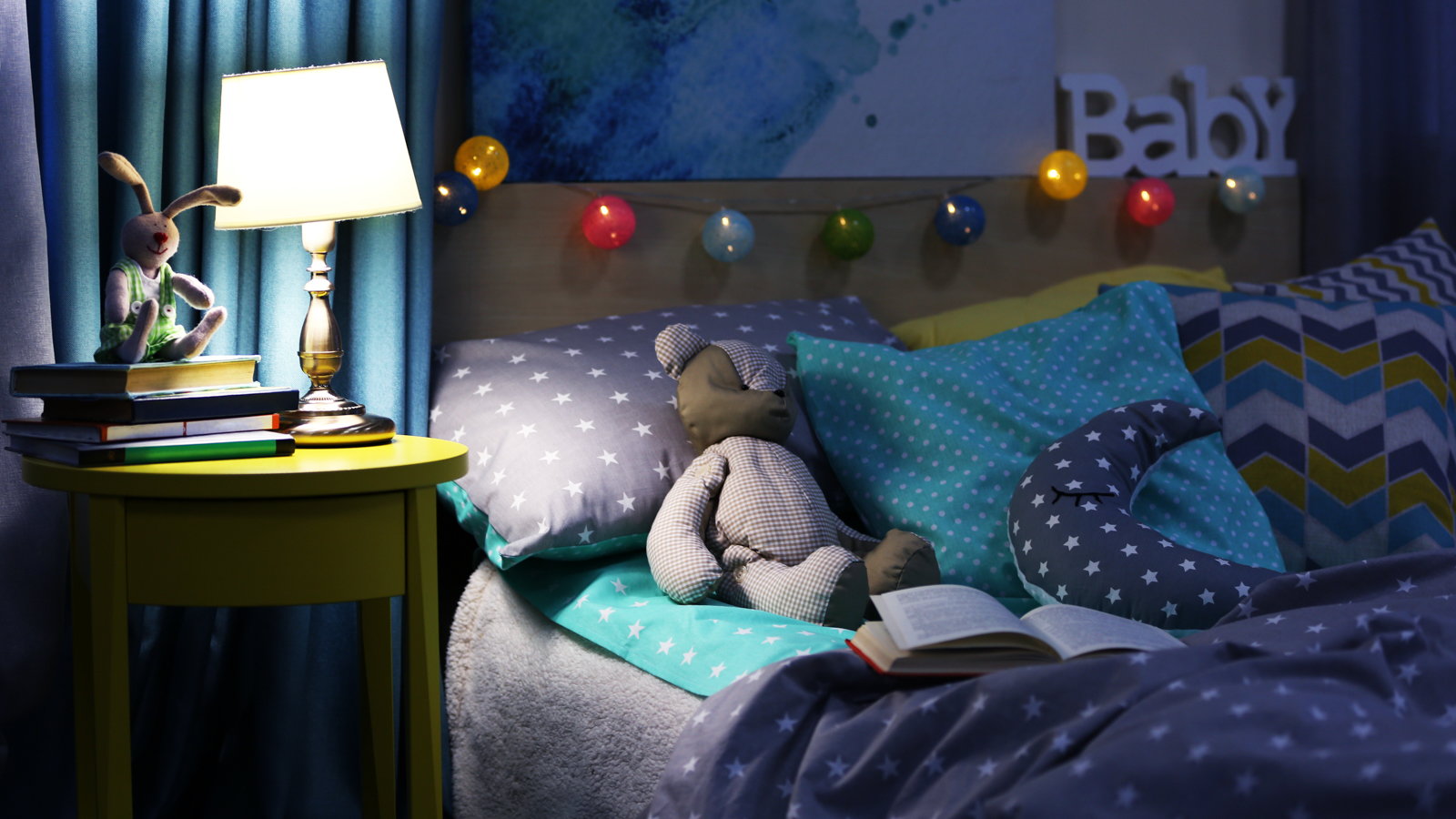5 Tips for a Kid-Friendly Nighttime Routine





5 Tips for a Kid-Friendly Nighttime Routine


As a parent, you know that getting your kids to bed on time can be a challenge. They may be full of energy after a long day of playing, and they may not want to stop having fun to go to sleep. But a consistent bedtime routine can help your kids get the rest they need to stay healthy and happy.

Here are 5 tips for creating a kid-friendly nighttime routine:
- Start early. The best time to start a bedtime routine is when your child is still young. This will help them get used to the routine and make it more likely that they will stick with it as they get older.
- Be consistent. The most important thing is to be consistent with your bedtime routine. This means doing the same things in the same order every night, at the same time. Your child will learn to expect the routine and will be more likely to cooperate.
- Make it fun. A bedtime routine should be enjoyable for your child, so try to include some fun activities that your child will look forward to. This could include reading a story, singing a song, or giving your child a back rub.
- Create a relaxing environment. Make sure your child's bedroom is a calm and relaxing environment. This means dimming the lights, turning off the TV, and keeping noise to a minimum.
- Be patient. It may take some time for your child to adjust to a new bedtime routine. Be patient and don't give up if your child has a few bad nights. Just keep at it, and eventually your child will get the hang of it.

Here are some additional tips that may help you create a successful bedtime routine for your child:
- Set a realistic bedtime. Don't try to put your child to bed too early. If they're not tired, they'll just end up fighting sleep and having a harder time falling asleep.
- Encourage your child to get some exercise during the day. Exercise helps children to tire out, which makes it easier for them to fall asleep at night.
- Avoid caffeine and sugar before bed. These substances can make it harder for your child to fall asleep.
- Make sure your child is not overtired. If your child is overtired, they may have a harder time falling asleep and staying asleep.
- Talk to your child about the importance of sleep. Explain to your child that getting enough sleep is important for their health and well-being.
Following these tips can help you create a bedtime routine that works for your child and helps them get the rest they need.

Key Terms: kids, bedroom, night

5 Tips for a Kid-Friendly Nighttime Routine
Do you have a hard time getting your kids to go to bed at night? You're not alone. Many parents struggle with this, and it can be a real source of stress. But there are a few things you can do to make bedtime a more enjoyable experience for everyone involved.
1. Establish a bedtime routine.
One of the best ways to get your kids to go to bed on time is to establish a bedtime routine. This means doing the same things every night in the same order, starting about an hour before bedtime. For example, you might start by reading a book together, then brushing teeth, getting dressed for bed, and finally saying prayers or tucking them in. The key is to make the routine relaxing and predictable, so that your kids know what to expect.
2. Create a calming environment.
Your child's bedroom should be a place where they can relax and unwind. Make sure the room is dark, quiet, and cool. You might also want to play some soothing music or dim the lights. If your child has trouble falling asleep, you can try using a white noise machine or earplugs.
3. Set a consistent bedtime.
It's important to set a consistent bedtime and stick to it as much as possible, even on weekends. This will help your child's body get into a regular sleep-wake cycle. If your child has trouble falling asleep, you can gradually move their bedtime back by 15 minutes each night until you find the right time.

4. Be patient and consistent.


Getting your kids to go to bed on time can take time and patience. Don't get discouraged if you don't see results immediately. Just keep at it, and eventually, you'll find a routine that works for your family.
5. Talk to your child about sleep.

It's important to talk to your child about the importance of sleep. Explain that sleep helps their body and brain grow and repair itself. You can also talk about what happens when they don't get enough sleep, such as feeling tired, cranky, and having trouble paying attention.


Bonus tip: If your child is having trouble falling asleep, you can try giving them a warm bath, reading them a story, or giving them a massage. You can also try using a weighted blanket or listening to calming music.
Here are some additional tips for a kid-friendly nighttime routine:
- Keep the lights dim in the evening.
- Avoid caffeine and sugar before bed.
- Make sure your child gets enough exercise during the day.
- Create a relaxing bedtime ritual.
- Establish a consistent bedtime and wake-up time.
- Be patient and consistent.


Getting your kids to go to bed on time can be a challenge, but it's important for their health and well-being. By following these tips, you can create a bedtime routine that works for your family and helps your kids get the sleep they need.
Headline: Kids Bedroom Night: 5 Tips for a Kid-Friendly Nighttime Routine

Body:
- Establish a bedtime routine. One of the best ways to get your kids to go to bed on time is to establish a bedtime routine. This means doing the same things every night in the same order, starting about an hour before bedtime. For example, you might start by reading a book together, then brushing teeth, getting dressed for bed, and finally saying prayers or tucking them in. The key is to make the routine relaxing and predictable, so that your kids know what to expect.
- Create a calming environment. Your child's bedroom should be a place where they can relax and unwind. Make sure the room is dark, quiet, and cool. You might also want to play some soothing music or dim the lights. If your child has trouble falling asleep, you can try using a white noise machine or earplugs.
- Set a consistent bedtime. It's important to set a consistent bedtime and stick to it as much as possible, even on weekends. This will help your child's body get into a regular sleep-wake cycle. If your child has trouble falling asleep, you can gradually move their bedtime back by 15 minutes each night until you find the right time.
- Be patient and consistent. Getting your kids to go to bed on time can take time and patience. Don't get discouraged if you don't see results immediately. Just keep at it, and eventually, you'll find a routine that works for your family.
- Talk to your child about sleep. It'.


